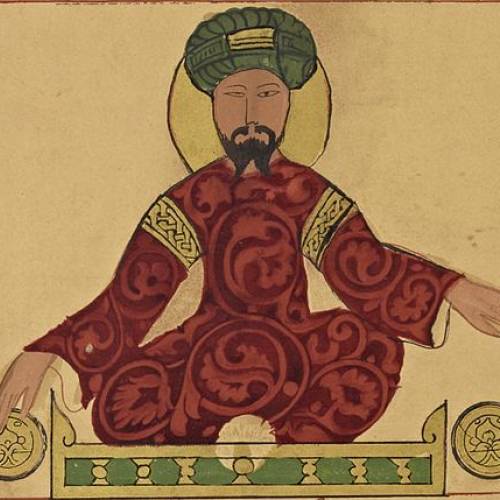 https://heaven.world/en/saladin-
https://heaven.world/en/saladin-
Firstname
Saladin
Lastname
Name
Saladin
lived from:
1137-00-00
lived until:
1193-00-00
An-Nasir Salah ad-Din Yusuf ibn Ayyub, known as Saladin, was the first sultan of Egypt and Syria and the founder of the Ayyubid dynasty. A Sunni Muslim of Kurdish origin, Saladin led the Muslim military campaign against the Crusader states in the Levant. At the height of his power, his sultanate included Egypt, Syria, Upper Mesopotamia, the Hejaz, Yemen and other parts of North Africa.
Originally sent to Fatimid Egypt in 1163 by his Zengid lord, Nur ad-Din, Saladin climbed the ranks of the Fatimid government by virtue of his military successes against Crusader assaults against its territory and his personal closeness to Fatimid caliph al-Adid. When Saladin's uncle Shirkuh died in 1169, al-Adid appointed Saladin vizier, a rare nomination of a Sunni Muslim to such an important position in the Shia Muslim-led caliphate. During his term as vizier, Saladin began to undermine the Fatimid establishment, and following al-Adid's death in 1171 he assumed control over the government and realigned the country's allegiance with the Sunni Muslim, Baghdad-based Abbasid Caliphate. In the following years, he led forays against the Crusaders in Palestine, commissioned the successful conquest of Yemen, and staved off pro-Fatimid rebellions in Upper Egypt.
Not long after Nur ad-Din's death in 1174, Saladin launched his conquest of Syria, peacefully entering Damascus at the request of its governor. By mid-1175, Saladin had conquered Hama and Homs, inviting the animosity of his former Zengid lords, who had been the official rulers of Syria. Soon after, he defeated the Zengid army at the Battle of the Horns of Hama and was thereafter proclaimed the "Sultan of Egypt and Syria" by Abbasid caliph al-Mustadi. Saladin made further conquests in northern Syria and Jazira, escaping two attempts on his life by the Assassins, before returning to Egypt in 1177 to address issues there. By 1182, Saladin completed the conquest of Muslim Syria after capturing Aleppo, but ultimately failed to take over the Zengid stronghold of Mosul.
Under Saladin's command, the Ayyubid army defeated the Crusaders at the decisive Battle of Hattin in 1187, and thereafter wrested control of Palestine - including the city of Jerusalem - from the Crusaders, who had conquered the area 88 years earlier. Although the Crusader Kingdom of Jerusalem continued to exist until the late 13th century, its defeat at Hattin marked a turning point in its conflict with the Muslim powers of the region. Saladin died in Damascus in 1193, having given away much of his personal wealth to his subjects. He is buried in a mausoleum adjacent to the Umayyad Mosque. Saladin has become a prominent figure in Muslim, Arab, Turkish and Kurdish culture, and he has often been described as being the most famous Kurd in history.
Damascus (Damascus Governorate), Syria
https://en.wikipedia.org/wiki/Saladin